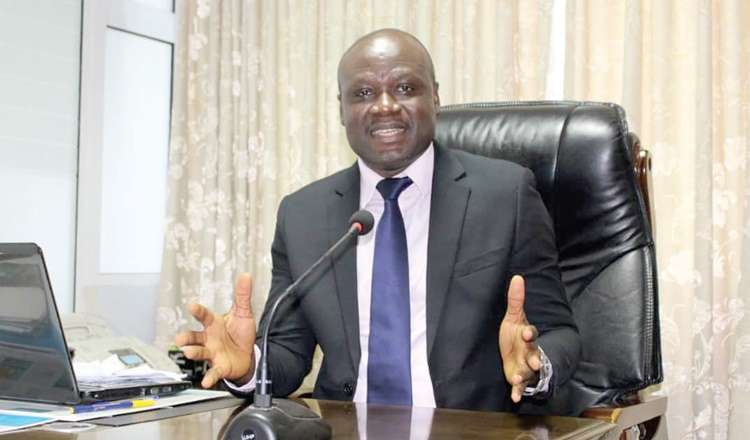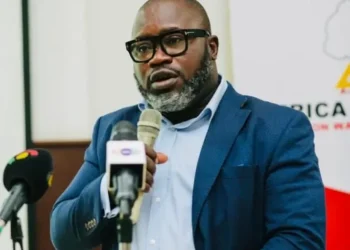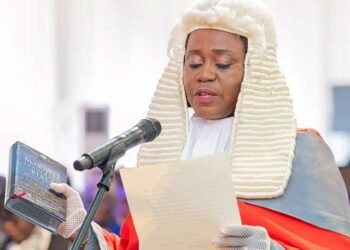The CEO of the Ghana Chamber of Commerce and Industry (GCCI), Mark Badu-Aboagye, has called on the Ghanaian government to exercise fiscal discipline as the country approaches the 2024 elections.
Speaking during an interview, Mr. Badu-Aboagye pointed to the International Monetary Fund’s (IMF) concerns over Ghana’s repeated election-year budget overruns. These excessive expenditures often lead to large deficits, inflation, and significant financial strain on the general populace. According to him, the current situation risks repeating itself in 2024 unless the government changes course.
Mark Badu-Aboagye expressed frustration with the government’s consistent overspending during election periods, which he noted has often resulted in the printing of money—a move that typically triggers inflation.
“When inflation goes up, it’s those on fixed incomes, like wage earners, who feel it the most. The money they have can no longer buy the same basket of goods and services,” Mr. Badu-Aboagye lamented.
While inflation may help the government reduce the real value of its debt, Mr. Badu-Aboagye pointed out that it comes at the expense of ordinary citizens, particularly low-income earners, who bear the brunt of rising costs of living.
This, he argued, is a recurring economic burden that must be addressed with more responsibility by those in power.
Mr. Badu-Aboagye emphasized the need for Ghana’s government to adopt a more responsible approach to managing the country’s finances, particularly during election years when reckless spending often leads to deeper financial crises.
He stressed that the pattern of overspending does not just exacerbate economic difficulties but also erodes public trust in the government.
“Why are we suffering like this? We know the consequences of budget overruns and inflation, but we keep repeating these mistakes. People are struggling just to survive.”
Mark Badu-Aboagye, CEO of the Ghana Chamber of Commerce and Industry (GCCI),
Ghana has been under increased financial pressure due to its economic mismanagement, particularly when it comes to public spending and debt accumulation.
Loss of Savings Due to Government’s Debt Restructuring

The CEO also spoke about the government’s debt restructuring program, which has caused many Ghanaians to lose their savings.
According to him, this financial strain has been a direct result of the government’s poor management of the economy, affecting ordinary citizens.
“Can you imagine someone’s life savings, invested in a bond, with the belief that the government is risk-free, only for them to lose it all? People who have worked hard for their future now see their investments wiped out because of poor economic management.”
Mark Badu-Aboagye, CEO of the Ghana Chamber of Commerce and Industry (GCCI),
“For the first time, people are looking at government bonds with a third eye. What used to be considered risk-free is now seen as risky, and that shouldn’t happen,” he warned.
Looking ahead to the 2024 elections, Badu-Aboagye expressed hope that the hardships Ghanaians have endured in recent years will serve as a crucial lesson for future leaders.
He emphasized the need for the country’s leaders to prioritize economic stability over short-term political gains.
Election years have traditionally been a period of excessive public spending, with governments often overrunning their budgets to fulfill campaign promises or finance politically motivated projects.
Mr. Badu-Aboagye reiterated that this practice needs to be curbed to prevent the country from plunging into further financial instability.
“We need responsible leaders who understand that the decisions they make have real consequences for the lives of ordinary Ghanaians. People are dying, and it’s because of poor economic decisions.”
Mark Badu-Aboagye, CEO of the Ghana Chamber of Commerce and Industry (GCCI),
With public trust in financial management eroding, many Ghanaians are hoping that lessons from the past will guide future economic policy-making, ensuring that 2024 does not bring another wave of economic hardship.
READ ALSO: Trump Seeks Fair Deal To End Ukraine War























